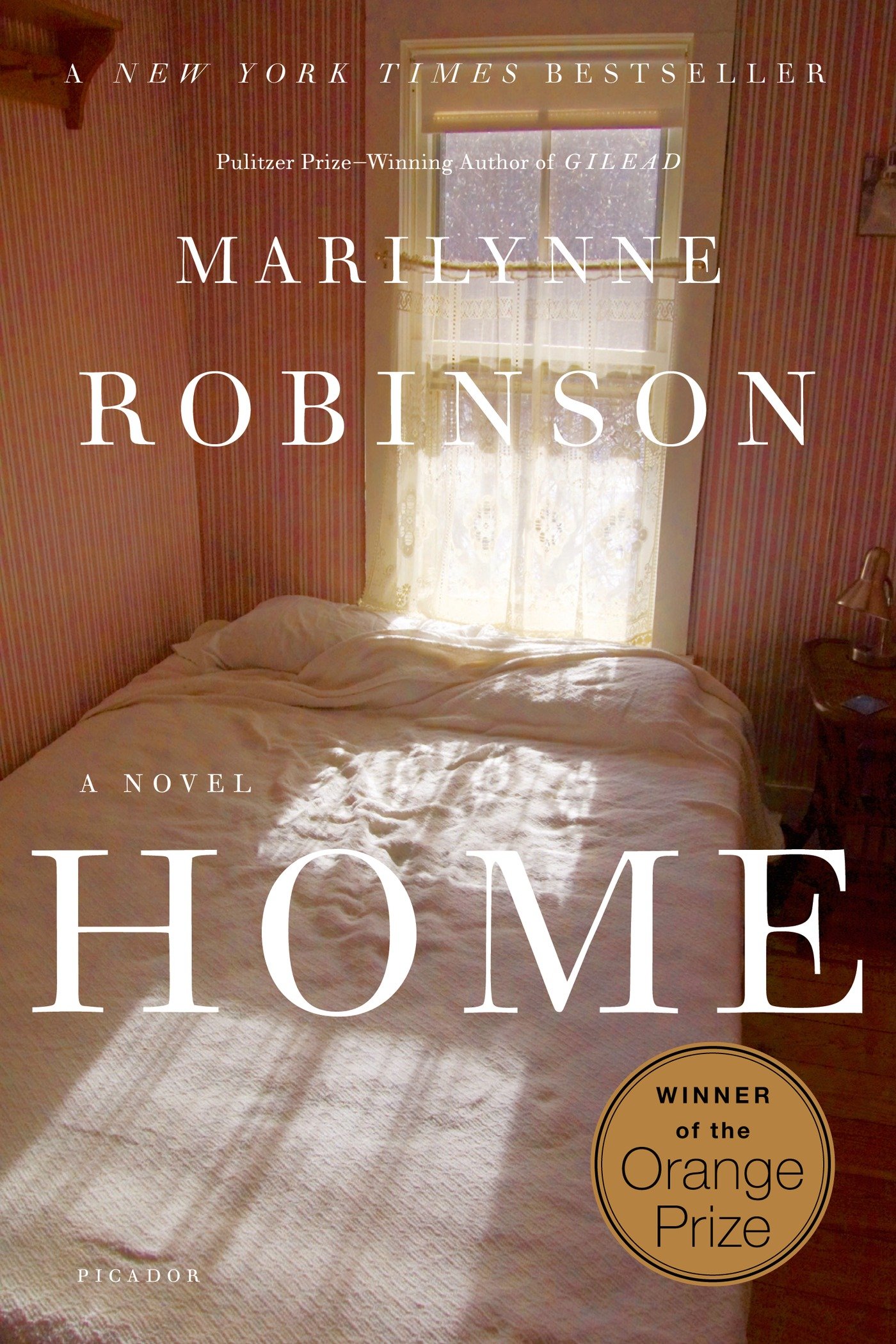
*Spoilers Below*
These are such quiet books, full of space and time for the reader to move through, draw their own conclusions, watch with the characters the ebb and flow of life. It's really quite extraordinary, and more remarkable still is what happens when you layer one book on top of the other.
For a change, I actually started this series at the beginning, instead of with the third book, which was quite a sensation the year before last. That means that I've been through these events once, from the eyes of the Reverend John Ames, seen his anger and frustration over his own failing body and the behaviour of his namesake, a son of his best friend, another minister.
This time, we're in the Boughton house when Jack comes home, and we see through the eyes of Jack's sister much of the same story, but with a different flavour, a different relationship between characters, and yet, with the knowledge of the first book, sentences land differently, lines have strong punches, even though the action is as quiet as ever.
It's very well done, and it makes watching Jack interact with his father more painful. We know, as readers, when Jack asks about the sins of the father falling on the son, that he's thinking about his own son, who has not yet been mentioned in this book. But the other characters read it as an attack on his father, and react accordingly. What is a cry for help is seen as a thrust by an ungrateful son.
Because they are different people, they do not understand, in a family where much goes without saying, and what is said is often just exactly the wrong thing at the wrong time. There are no easy heroes or villains. We know the father to be a good and loving man, yet every time he does reproach Jack, it makes me wince, because I know enough now to know that's exactly the wrong thing to do.
This is really the story of what happens after the celebration welcoming home the prodigal son, when all the worries and stresses of the years he was away comes back, when he isn't quite the repentant accepting man you might imagine. When there's some sharpness, some hurt feelings that come out of old age and a need to say things that have been brewing for years and years. Celebration is all well and good, but then there are all the days after.
And yet, Jack is irritating. He is so invested in being unsaveable that it makes you want to wring his neck. Everything he's done is blown up huge, out of what seems to be an unconscious self-centeredness. He refuses grace, when everyone around him loves him and just thinks if he could stop fighting everything all the time, things would work out. He's his own worst enemy.
From their own points of view, every character makes assumptions about the others in the world, and yet despite these misunderstandings, there is genuine connection and love and affection. There is also the pain that comes from uncertainty, from deliberate and accidental injuries.
Going back to the title, Robinson gives us home as a refuge and a trap, a place of comfort, and a place that makes you aware you'll never be what people who know you so well and yet not well enough want you to be. It's hard to read, in a quiet way. The sensation by feeling trapped by other people's maps of you, and wanting to hit back is delicately captured.
I am very interested now to see what light the third book throws over this town.
No comments:
Post a Comment